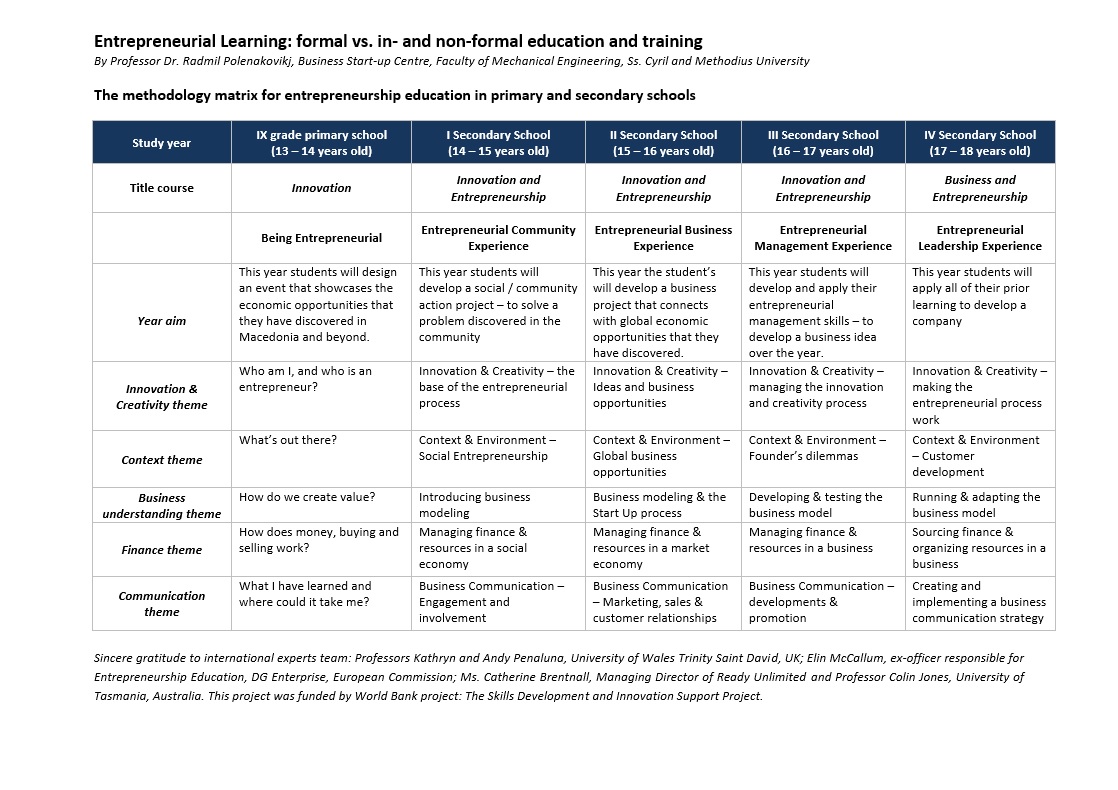There is no doubt that the UK is an innovative and entrepreneurial society.
In just three years –between 2011-2014 – 400,000 new businesses were created, with SMEs and start-up ventures adding 48% to private sector turnover. In fact, 99% of British businesses can now be classed as small or micro, showing the real depth of opportunity for entrepreneurs and those seeking an entrepreneurial environment.
The real question, however, is: are we equipped on a general level with the aptitude, mindset, and employability skills required by these enterprises? Are British school leavers and university graduates ready for the challenges and opportunities posed by small businesses and start-ups?
Enterprise Education Abroad
In the recent report, An Education System Fit for an Entrepreneur, The United Nations Conference for Trade and Development’s (UNCTAD) Chief of Entrepreneurship recounts that many developing countries are more engaged with enterprise than those with traditional approaches to education. This is despite UNCTAD concluding that it is necessary to “mainstream the development of entrepreneurship awareness and entrepreneurial behaviours starting from primary school level”.
Foremost amongst these champions of enterprise education are a number of Eastern European nations. The South East European Centre for Entrepreneurial Learning (SEECEL) supports enterprise education at all stages of schooling, identifying education as “critical to the development of the entrepreneurial mind-set and behaviour, resulting not only in increasing numbers of small businesses but also greater creativity and productivity of the workforce in general” (A Charter for Entrepreneurial Learning: The Keystone for Growth and Jobs). This extensive competency based approach has been rolled out across eight countries, creating a curriculum which recognises enterprise as critical to personal, social, and economic development.
The Macedonian Model
One member of the SEECEL, Macedonia, is of particular interest.
Macedonia, to set the scene, is one of the former nations of the Socialist Federal Republic of Yugoslavia. It has a population of 2.1 million (compared with Britain’s 65 million) and an average life expectancy of 75 (compared with 81 in the UK). GDP is $10 million, versus the UK’s $2.8 trillion.
And yet, Macedonia is arguably leading the way when it comes to enterprise education.
School children in Macedonia receive formal enterprise education from the ages of 13-18, following a structured programme which teaches skills including innovation and creativity, finance, management, and communication. Supported by the World Bank and the Macedonian Ministry for Education and Science, students progress from planning an event and social/community project, to developing a business and company, all whilst learning and testing the core competencies required by entrepreneurs. They are ably guided by specialist teachers who have undertaken training courses in enterprise.
As enterprise education advocate, Professor Andy Penaluna, comments:
“When will English schools get the kind of support and guidance that primary and secondary schools in the Macedonian Republic have from their policy makers and the World Bank?”
How Britain Can Update Its Enterprise Education
Whilst some steps have been taken to improve enterprise education in British classrooms, it still often feels like something of a fad. Access to entrepreneurial learning tends to be pot luck and dependent on having a specialist, or at least willing (and in many cases pioneering), teacher. Resultantly, enterprise education is often only seen in middle-class centres of learning, putting up yet another barrier to entry.
With the example of Macedonia in mind, however, we at Crowdfund Campus think there is no excuse for entrepreneurship lessons to be sidelined as they are at present. Enterprise education should form a core part of the curriculum – not just within business studies courses or at business schools, but starting at primary school and carrying on throughout secondary and tertiary education. All pupils should have access to enterprise education that is formally timetabled and led by specialist teachers and business partners, in order to “inspire many more young people about entrepreneurship… [so they are] better equipped to achieve their goals, and to contribute to a more competitive and productive UK plc” (BITC).
If you’re interested in introducing enterprise education to your classroom and would like to trial our innovative Sandpit simulation and crowdfunding platform, please don’t hesitate to contact us today.






Leave a Reply